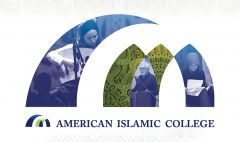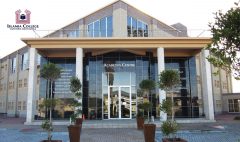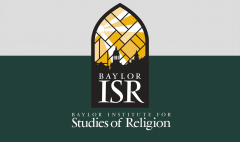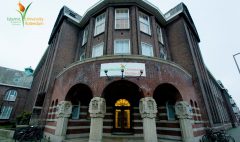The Centre for Islamic Thought and Education (CITE)
August 10, 2017 2023-08-16 12:09The Centre for Islamic Thought and Education (CITE)
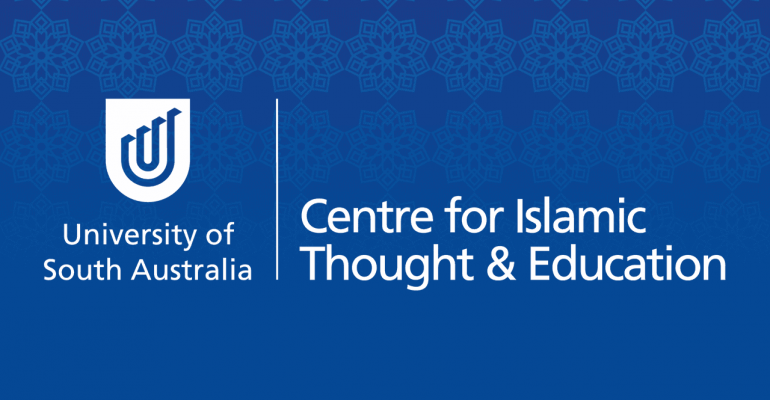
The Centre for Islamic Thought and Education (CITE)
The philosophy of the center is to promote empirical research informed by Islamic methodologies, philosophies and pedagogies, cognizant of the unique Australian context.
Bringing together researchers specializing in Islamic civilization, psychology, ethics, leadership, management, finance and education, CITE’s staff has extensive academic experience in Islamic studies, and importantly, substantial understanding of the needs and aspirations of the Australian Muslim communities.
The approach is strength based and does not examine the Muslim community as a ‘subject’ of inquiry that is inscribed by ‘otherness.’ The Center will have major, ongoing impact on the deeper understanding of Islam and Muslims, and their place in Australia and the modern world. CITE will provide a model for research, teaching and community engagement that are informed by a comprehensive understanding of Islam and Muslims based on Islam’s sacred traditions and contemporary realties.
CITE will engage with academics, journalists, politicians, and the wider community in order to inform, educate, and build bridges of understanding, and to promote a spirit of interconnectedness.
Academic Research
CITE engages in first-class and cutting-edge academic research with a focus on Islam and Muslims within an Australian/Western context. Research topics include:
- Interconnectedness of civilizations: Islam and the West
- Contextualization of Islamic thought
- Islamic schooling renewal: school improvement, school effectiveness, quality teaching and learning; Islamic and Arabic studies; pedagogy and curriculum; and teacher training, informed by the philosophy and principles of Islamic education and best contemporary practice
- Management and leadership as a practice and theory; a combination of contemporary and Islamic focus
- Family relationships and combating domestic violence
- Islam in Australia
- Islam, culture and identity
- Islamic banking and finance
Teaching
CITE’s staff have extensive experience in teaching university level courses in Islamic and non-Islamic areas such as:
- History of Islamic civilization
- The scientific enterprise in the Islamic civilization
- Islamic law
- Islamic finance
- Islam and the media
- Islamic education (including matters related to teaching philosophy, pedagogy, worldview, vision of Islamic schools, Islamic studies, behavior management, character education and school-home partnerships)
- Criminal and Forensic Psychology
- Psychology of the Justice system
- Family relations
- Leadership processes
CITE will offer a host of Islamic studies programs for communities, schools, government departments and non-government and corporate organizations.
Teacher Training and Professional Development Programs and Courses:
- Short courses and certificate programs
- Islamic School Induction Programs for new staff
- Islamic Studies short courses for teachers
- Workshops and short courses tailored to needs of schools
External Engagement
It is CITE’s deep conviction that academic research and teaching must positively impact on external engagement with community, media, government and NGOs. This is at the heart of CITE’s philosophy.
The CITE strives to be a voice of expertise, enriched by a deep understanding of the Islamic faith and Muslim peoples within an Australian context, to empower the community to meet the many challenges with strength, dignity and wisdom. The CITE will actively engage with government, NGOs and media to enrich both dialogue and positive partnerships with Australian Muslims, informing policies pertaining to them, and inform reporting of Islam and Muslims in the media.
The CITE will genuinely engage with, and benefit from, members of the Australian Muslim communities: the youth, women, the religious and the administrative leadership, as well as the community at large; giving them a voice and ownership to issues that affect their lives in Australia.
The CITE will actively engage with the wider Australian community, the Australasian and international communities, and collaborate on projects and programs of mutual benefit.
Research Projects
- Islamic Studies Curriculum Projects
CITE in partnership with the Islamic Schools Association of Australia (ISAA) as well as curriculum partners Nationally and Internationally are leading the design and development of an Islamic Studies Curriculum (Prep – Grade 10) and a Senior Islamic Studies Syllabus known as Applied Islam (Grade 11 – 12). The Islamic Studies Curriculum (P – 10) will align with the Australian Curriculum in structure and both this and the Senior Islamic Studies Applied Islam Syllabus propose to authentically integrate the Islamic sciences such that they are relevant to student’s lives, responsive to the Australian context, and age appropriate with scope for inquiry, critical thinking and reflective assessment. CITE and project partners will lead the consultative design and implementation phases.
- Applied Islam
Young Australian Muslims are faced with various challenges that impact on, and make them question, their faith and identity. These challenges can include religious, social, political and cultural dimensions. In an age of nihilism, narcissism, and violence in the name of Islam, these challenges seem insurmountable and difficult to counter. Furthermore, given the absence of an alternative narrative that is grounded in the sacred tradition, and an understanding of contemporary issues, our young people are left without the necessary knowledge and skills to overcome such mighty challenges. While Islamic schools, madrassas and mosques in the Western context offer some relief, they are often not equipped to provide valid Islamic answers to these challenges. This leaves our most valued, yet most vulnerable, group of young people lost amidst the turmoil of modern society, searching for deeper meaning to these questions and their place as emerging Australian Muslims. Applied Islam has been designed to fill this vacuum, and begin to quench the thirst of these young people by providing them with the much needed answers.
Applied Islam is tailor made to meet the needs and expectations of emerging young Australian Muslims to equip them with the necessary knowledge, insight and experience to meet the aforementioned challenges. The program utilizes traditional sacred sciences combined with an understanding of contemporary issues, established on social science methods, aimed at answering questions related to faith, identity, modernity, secularism, existence, cultural norms and practices and their relation to Sacred Law. The program also explores the historical context of Islam, including the biography of the Prophet, and derives lessons for modern challenges. Furthermore, the program exposes students to the meaning, scope and application of Sharia, the legacy of the Islamic civilization and its tremendous contributions to the various fields of knowledge, and the active contributions Muslims had with non-Muslims throughout the ages.
Applied Islam allows students to navigate through the many contemporary issues they encounter with an Islamic lens embedded within an Islamic worldview that is cognizant of the modern world. The Applied Islam project was delivered over 2 years in Brisbane, Australia, and is currently being delivered to a number of Islamic schools in Victoria, NSW and South Australia.
- Dignified Way
Dignified Way is a whole-community approach to character education and classroom management within a Prophetic pedagogical framework for quality teaching and learning and building of strong school culture. Dignified Way offers a purpose fit model aligning with the principles of Islamic education for Islamic schools and Madrassah. The Dignified Way philosophy prioritises transformation over compliance, incorporating notions of authenticity, presence, dignity, empathy, justice and mercy. Dignified Way proposes to 1) assist in the alignment of the purpose of learning with the pedagogy of the classroom; 2) develop strong and positive school culture emanating from the classroom; and 3) inculcate the essential ingredient of adab in the learning partnership between teachers, students, school leaders and parents.
- inspiredNAFSi
inspiredNAFSi is a 13-weeks personal leadership program, underpinned by a strength-based approach and Muslim worldview, that uses the Yarning Circle Tool to create self-awareness in individuals facing daily life challenges and struggle with articulating their thoughts and views. The program empowers them with skills to heal any trauma and empower themselves; thereby reducing their isolation and reintegrating them into workplaces/society as a way forward. Individuals gain practical skills that assist them in decision-making processes and links them up with various support and services that exist within their communities.
- Islamic School Renewal
School reviews, evaluations and appraisals; school satisfaction reports; action-research projects, staff induction, teacher training and professional development and learning, curriculum renewal, pedagogical practice and whole-school solutions for renewal and school improvement support within Islamic schools.
Induction Workshops
Annual Workshops provide quality induction for new teachers in Islamic schools (both Muslim teachers and teachers who do not identify as Muslim) to enhance the educational experience of Australian Muslim students. The workshop covers religious and cultural competency in Muslim communities and Islamic schools; Islamic education principles, perspective and philosophies; responsive pedagogy for teaching Muslim students; and contemporary issues in the Australian Islamic school classroom.
- Leadership Processes in Islamic Organizations
This project deals with processes of leadership across organizations, which entails the leaders’ and followers’ behaviors, actions, attitudes and the perceptions concerning the leadership process among various stakeholders.
- Ethical Finance
This program focuses on Islamic finance as an alternative financing model in the Australian and global finance markets. The program is designed for teaching and research at under- and post-graduate levels and incorporates the understanding of new paradigms in ethical finance premised on Islamic legal criteria, comparative studies of conventional commercial and tax laws. These paradigms resonate with Islamic trade practices and alternative investment practices that fall under the general rubric of ethical finance.
Contacts
- Address: De Lissa Building, UniSA Magill Campus, Lorne Avenue, Magill, SA 5072, Australia
- Phone: +61 8 8302 4910
- Email: cite@unisa.edu.au
- Website: http://www.unisa.edu.au/Research/Centre-for-Islamic-Thought-and-Education/


